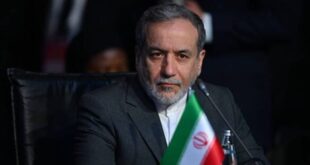 The Bush administration wants India to help get Iran to curtail its nuclear progress, while many in India are resisting what they see as the US meddling in Indian foreign affairs. India’s long-standing ties with Iran appear to be threatening the beleaguered nuclear energy deal between Washington and New Delhi and, more broadly, their growing strategic alliance.
The Bush administration wants India to help get Iran to curtail its nuclear progress, while many in India are resisting what they see as the US meddling in Indian foreign affairs. India’s long-standing ties with Iran appear to be threatening the beleaguered nuclear energy deal between Washington and New Delhi and, more broadly, their growing strategic alliance.
The Bush administration has long expressed concern regarding India’s relations with Iran and its reluctance to help curtail Iran’s nuclear program. This month, Richard Boucher, assistant secretary of state for South Asia, made clear that the administration is still looking for answers from New Delhi.
“The Indian government is very well aware of the concerns of India’s military relationship with Iran. What we are trying to do is for everybody to understand the facts of the matter,” he said in Washington.
Boucher’s remark came as the Indian government is battling domestic opposition to the US-India nuclear deal. While the agreement ensures India uninterrupted nuclear supplies from the United States, critics have accused Prime Minister Manmohan Singh of giving in to various US demands, compromising India’s sovereignty.
For opponents of the deal, Boucher’s statement served as further evidence of US meddling.
“America is intimidating us. It is none of their business to dictate what we should or should not do with Iran,” said D. Raja, national secretary of the Communist Party of India, which lends crucial support to Singh’s coalition government but which has launched nationwide street protests against the agreement. “Our suspicions about the nuclear deal have come true. The attempt is to drag India into the American global strategy. We have to resist that. We cannot antagonize our traditional friends for the sake of Americans.”
Reacting to Boucher’s statement, Indian Defense Minister A.K. Antony told reporters that India’s relations with the United States and Iran were independent of each other.
“India has very friendly relations with Iran. It will continue to do so. India’s friendship will not come in the way of good relations with any other country,” he said.
Three weeks ago, Antony informed parliament that the Indian navy was training five Iranian sailors in its facilities. Indian Foreign Minister Pranab Mukherjee recently said that Iran had “every right to pursue its nuclear program for peaceful purposes” and that India favors a “noninterventionist policy in Iran.”
Such a policy would run contrary to the hopes of the Bush administration. The legislation that made the US-India nuclear deal possible contains a nonbinding provision saying that India should work with the United States to dissuade Iran from developing its nuclear program and, if necessary, help contain it.
Analysts say India’s relationship with Iran goes back to ancient times. The influence of Persian language, art and architecture is evident in much of northern India, and the Taj Mahal is a magnificent testimony to this cross-cultural heritage. In the recent past, the two nations have shared strategic goals in Afghanistan and elsewhere in Central Asia.
“There has always been a convergence of geopolitical and strategic interests between India and Iran. To understand that, you just need to look at the map. Iran helps India achieve strategic depth in Afghanistan and bypass Pakistan,” said Mohammad Sohrab, associate professor of Third World studies at New Delhi’s Jamia Millia University. “We should not let the nuclear deal cast a shadow on our independent foreign policy.”
 Eurasia Press & News
Eurasia Press & News



